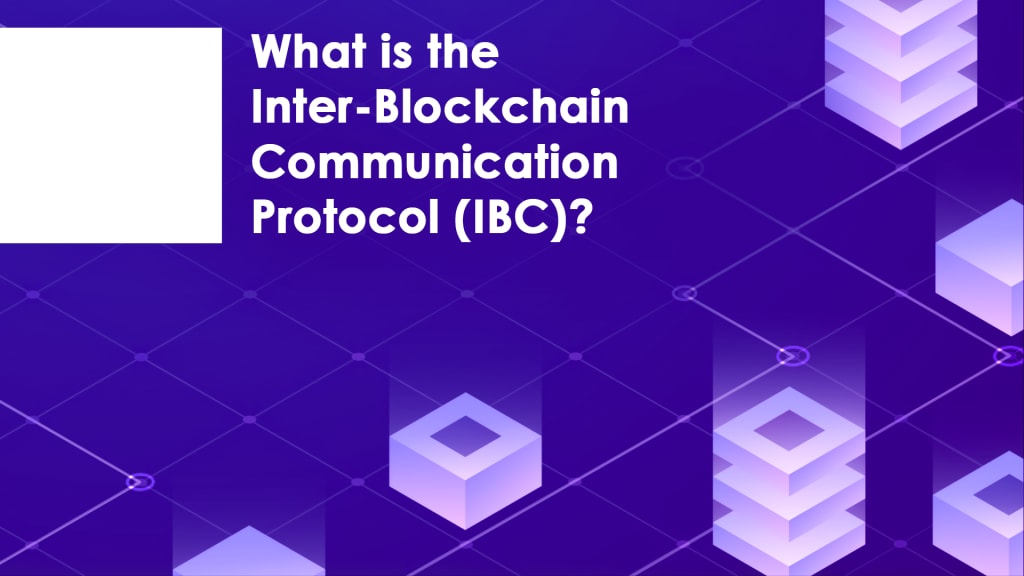What is the Inter-Blockchain Communication Protocol (IBC)?
What is the Inter-Blockchain Communication Protocol (IBC)?

In the growing and evolving landscape of blockchain technology, interoperability has emerged as a necessary concept. As the number of blockchains and decentralized applications (dApps) grows, the ability of these systems to communicate and transact seamlessly becomes increasingly important. Enter the Inter-Blockchain Communication Protocol (IBC), a groundbreaking solution designed to facilitate interoperability among independent blockchain networks.
Overview Of IBC
IBC is a protocol that enables different blockchain networks to exchange data and tokens in a secure and trustless manner. Developed within the Cosmos ecosystem, IBC addresses the challenge of interoperability by establishing a standardized framework for communication between blockchains. This protocol is pivotal as it allows for the seamless transfer of assets and information across diverse blockchain platforms, regardless of their underlying consensus algorithms or programming languages.
Key Features of IBC
Security and Trustlessness: IBC ensures that transactions between blockchains are secure and do not require intermediaries. By leveraging cryptographic techniques and smart contracts, it enables direct peer-to-peer communication while maintaining the integrity and authenticity of data.
Decentralization: As a protocol within the broader decentralized finance (DeFi) ecosystem, IBC promotes the principles of decentralization. It enables decentralized applications (dApps) to operate across multiple blockchains, enhancing the scalability and usability of blockchain technology.
Scalability: One of the primary benefits of IBC is its scalability. By connecting different blockchains, it reduces congestion and enhances transaction speeds across networks. This scalability is crucial for supporting the growing demands of decentralized applications and services.
Token Interoperability: IBC facilitates the transfer of tokens across blockchains, allowing users to exchange assets seamlessly between different networks. This capability is essential for enabling cross-chain DeFi applications, such as decentralized exchanges (DEXs) and liquidity pools.
Standardization: IBC introduces a standardized protocol layer for inter-chain communication, making it easier for developers to build interoperable applications. This standardization reduces complexity and facilitates the adoption of blockchain technology across various industries.
Use Cases and Applications
The potential applications of IBC are diverse and far-reaching:
Cross-Chain DeFi: IBC enables the creation of decentralized financial products that operate across multiple blockchains, such as cross-chain lending platforms and asset management protocols.
Interoperable dApps: Developers can build decentralized applications that leverage the capabilities of multiple blockchains, enhancing functionality and user experience.
Supply Chain and Logistics: IBC can streamline supply chain management by enabling transparent and secure data exchange between different stakeholders on separate blockchain networks.
Tokenization of Assets: IBC facilitates the tokenization of real-world assets across multiple blockchains, enabling fractional ownership and enhancing liquidity.
Challenges and Future Developments
While IBC represents a significant step towards blockchain interoperability, several challenges remain:
Security and Privacy: Ensuring robust security measures and preserving user privacy across interconnected blockchains is crucial.
Regulatory Compliance: Addressing regulatory concerns and ensuring compliance with legal frameworks in different jurisdictions.
Technical Integration: Overcoming technical barriers to integrate IBC with existing blockchain networks and protocols.
Looking ahead, the development of IBC is expected to evolve with advancements in blockchain technology. Initiatives such as cross-chain bridges and improved consensus mechanisms will further enhance the capabilities of IBC, making it a cornerstone of the decentralized web.
Conclusion
The Inter-Blockchain Communication Protocol (IBC) represents a significant advancement in the quest for blockchain interoperability. By enabling seamless communication and asset transfer between independent blockchain networks, IBC unlocks new possibilities for decentralized applications, cross-chain DeFi solutions, and global commerce. As blockchain technology continues to mature, IBC is poised to play a pivotal role in shaping the future of decentralized finance and web 3.0 applications. If you want to know more on this topic read CosVM deep Blog The 5 Core Features of Inter-blockchain Communication (IBC).
About the Creator
Enjoyed the story? Support the Creator.
Subscribe for free to receive all their stories in your feed. You could also pledge your support or give them a one-off tip, letting them know you appreciate their work.





Comments
There are no comments for this story
Be the first to respond and start the conversation.